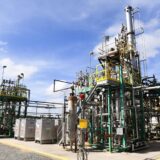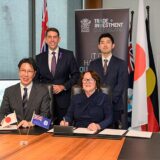
H2FLY achieves first piloted flight with liquid hydrogen-powered aircraft
On September 7, 2023, H2FLY, a trailblazer in hydrogen-electric powertrain systems for aircraft based in Stuttgart, Germany, proudly announced a monumental achievement: the world’s first piloted flight of an electric aircraft powered entirely by liquid hydrogen. The flight was conducted using the hydrogen-electric ‘HY4’ demonstrator aircraft, which took off from Maribor, Slovenia.
Key highlights from the announcement include:
1. Significant flight tests: The H2FLY team successfully completed four flights using liquid hydrogen. One of these flights lasted over three hours, showcasing the potential of this sustainable fuel source.
2. Doubling the range: Test flights revealed that switching from gaseous to liquid hydrogen could potentially double the HY4 aircraft’s maximum range from 750 km to a remarkable 1,500 km. This advancement is a pivotal step towards achieving emissions-free, medium- and long-haul commercial flights.
Professor Josef Kallo, co-founder of H2FLY, expressed his enthusiasm, stating, “This milestone, achieved in collaboration with our partners, underscores the potential of liquid hydrogen in reshaping the future of aviation. We’re now setting our sights on scaling our technology, aiming to decarbonise commercial aviation.”
This achievement is also a testament to the collaborative efforts of Project HEAVEN, a consortium supported by the European government. Led by H2FLY, the consortium includes esteemed partners such as Air Liquide, Pipistrel Vertical Solutions, the German Aerospace Center (DLR), EKPO Fuel Cell Technologies, and Fundación Ayesa.
With the successful completion of these flight tests, H2FLY is gearing up for the next phase. The company recently announced the development of its new H2F-175 fuel cell systems, marking another significant stride towards real-world commercial aircraft applications. Furthermore, in 2024, H2FLY plans to inaugurate its Hydrogen Aviation Center at Stuttgart Airport, solidifying its commitment to the future of hydrogen in aviation.
.jpg)











